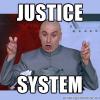Search the Community
Showing results for tags 'Addiction'.
-
Greetings free domain! I'm turning thirty next month, and expecting a kid next May. I've struggled with addiction and weight for most off my life, all due to my highly dysfunctional family of origin. The last couple years have been a most difficult adventure in discovering self knowledge, and after these last long 8 months of losing 70 pounds, i have also finally kicked my fifteen year addiction to marijuana and cigarettes. I've been sober from the weed for one month and haven't had a cigarette in about two weeks. It's not very long out of the jungle but it is quite an experience so far. My brain seems to be firing on all cylinders for the first time since i was probably five years old. I've been stoned for such a great portion of my life that now sobriety almost feels like a high of its own. Are there any other current or former marijuana users or cigarette smokers here? Perhaps we could open a discussion about why we used or still use, and techniques that led to the quitting process becoming successful. I have a few different paragraphs around my specific history with drugs i'm still editing, but wanted to get this post up and see who might be interested before i include some of that info and run on for too long. Thanks everybody!
-
- sobriety
- cold turkey
-
(and 4 more)
Tagged with:
-
Hi, I just had a thought about my cannabis usage over the past 5 years (with a 1 year break) that I began in my journal. I wanted to share it with you Cannabis can relieve anxiety in the moment, but if it breaks through, it will be more present. It will be more uncomfortable, and at times nearly unbearable. It will be a physical experience of anxiety without any limitation or method of managing it. What does this remind me of? My mother. I was not able to control my mother's anxiety. I was able to master this anxiety I felt by recreating my own mother in my head, and adhering to what I thought would make her more anxious, and by facilitating what I thought would make her less anxious. Many people experience uncontrollable anxiety when they first use cannabis. I did. Even now I sometimes do - often, in fact. Every smoking experience I've had over the past year has involved at least some anxiety while I've smoked. I think this is a sign of relative health compared to when I was able to smoke without any anxiety. What is the effect of cannabis overall on anxiety? It increases anxiety. This is because if cannabis is being used to manage anxiety, the user will not have to manage their anxiety with their foresight and frontal lobes, or an "inner parent" (not to be confused with an inner abuser). And the body will create more anxiety in response. When the body is then without cannabis, the person is left off unpracticed in managing their anxiety without cannabis. The more the cannabis use, the more frequent, the more well-timed, the more the person loses the ability to manage their anxiety without it. I think I used cannabis despite it making me more uncomfortable in my first uses because I felt insecure that there was not an uncontrollable source of anxiety in my life. I had spent my whole life managing anxiety from my mother, from the fact that I was afraid of being rejected and abandoned (another way of saying from my mother), from public school; that when I was living on my own at 19, doing well in a philosophy college course, I felt insecure by the relative lack of anxiety in my life, and I sought to create more. It was trauma-recreation to create an uncontrollable anxiety in my life that I would have to learn to master, and find ill-found joys in. It is no coincidence that my cannabis use began when I moved out of my mom's at 19, and that my anxiety management (in terms of alleviating it without cannabis) has worsened the more I've used weed. Thank you for reading and I hope this encourages you go avoid becoming addicted to cannabis, and to work to quit (with professional guidance if possible) if you are already addicted.
- 35 replies
-
- 4
-

-
I am celebrating one year of sobriety, and have put together an audio journal about addiction. This is the most difficult presentation I have put together so far. I had to carefully explore my parental inner-voices. It is a reconstruction of three different sessions recorded over the past week. I could not have explored this topic so closely without first deFOOing from my toxic family. Toward the end, I reflect on a strategy for changing the Twelve Step Program to remove god and the abdication of the self from the equation, which makes it a more humanizing process. Thank you for listening, and I appreciate the input as always! https://www.youtube.com/watch?v=ptkhFWbmUI4 I want to recommend any of Nathaniel Brandon's works on self-esteem and Jay Earley's IFS books, as these are the primary resources that I use for self-exploration and therapy. Shout out to Elliot Hulse of Strength Camp for providing a physical manifestation of self-esteem that I can model, and Stefan Molyneux and the Philosophy Crew at Free Domain Radio for being major influences on me recognizing and acknowledging my destructive addiction. This has been a collaborative effort to be certain.
- 27 replies
-
- 4
-

-
While I trust and value Dr. Maté's experiences through working with intravenous drug users for eight years, I cannot accept his conclusions because they aren't based on principles. Here is a list of the possible remedies he proposes in the book. 1) The most successful means of overcoming addictions is to open up to spirituality (something larger than yourself), whether that be god or altruism. Maté prefers a combination of leftist altruism and Buddhist principles over organized religion. 2) Minorities, especially "Natives", are abnormally affected by the malaise of drug addiction because of the viciousness and greed of white oppression. Minorities deserve reparations for this oppression. 3) Christian conservatives and libertarians lack empathy and want drug addicts to die. If we take a fraction of the money spent on the War on Drugs, more money can be spent on state-funded rehabilitation systems, reducing total crime and tax costs. Maté doesn't go out of his way to illustrate how effective his state-funded hotel is at reducing drug addiction. Through reading the book, I got the impression that it was an abysmal failure. I appreciated much of the rest of the book that didn't beg state-funded answers for questions, such as his description of how most people view addicts, how addicts view themselves, and how addiction develops in the brain. However, much to my dismay, Maté lets many parents off the hook for addiction by invoking "the best they could" mantra. This may have something to do with the fact that he is a parent himself. At many different times during the text, he conflates the desire for wealth with sickness, suffering, the source of evil, and an addiction in itself, while completely forgetting that money can just as easily fund good and desirable endeavors, like the rehabilitation of addicts. What reaction did you have to this book? I'd like to explore Maté's conclusions a little more closely, and sprinkle some voluntarism into them.
-
So recently is discoverd somethign about myself that i wanted to share here on the forums. And i think this is somethign that applies to many whom strugglte with such thigns as procrastination, lack of motivation and other related problems for example feeling that "you" are unable to want something more than mere short term satisfactions. The switch which this title is: - An object, activity or service of the sort whcih you use in your everydsay life which has become so saturated with being part of your life that it not only seems normal but in questioning your issues, problems and emotional issues (depression, sadness, frustrations ect.) your sub-chounchessness will actively block. - This "switch" is more subtle than for example cocaine since it hides in your very presence as normal: In other words cocaine users can SEE the negative effects of drugs but get benefits which addict them and also feels good but the bad effects can atleast be seen as bad. - The switch is something which will circle around you when you try to use theraphy and conversations about these thigns with your friend and family and it actively is that something which is ALWAYS out of question not knowingly, becaus ethen it would be too obvious. - The switch becomes feeding mechanism for you like addictive drug but is more sublte and some object, avtivity and "service" (hobby service you buys and use). You get short term gain from it and long term procrastination since your body and mind are "sated" by it cosntantly and thus it prevents you moving on. In my case it was sexual fetishes and computer screen "switch" thus i named it that. Now i realize it may have been researched better and called by other names. And its m,echanism explained by scientists better elsewhere. How it works: For example, computer switch can never be turned off and every time it comes up youll ignore it and your emotions take strong hold and try to sway you away from being critical of it. And most strongly, when you finally DO find out it and dont use it for while, you realize that since this "happy good" feed has been cut off you can start doing other thigns. Now OBVIOUSLY, self knowledge understanding your childhood and past is essential. Usually this is just detrction mechanism. Is there any object, item, service or actvity that you seem to "like and use", try not doing it for while and see if you suddently feel motivated to do things in more productive manner that wont make you feel liek youre stuck. I am writing this naturall with my monitor on. But since i now understand this switch of mine i dont feel as strong urge to jsut aly about in its feed. And i feel doing other things. And this applies to the OTHER switch i mentioned. Ideas and critism and "DUUHness" is appriciated if this simply feels like or IS just a different type of addiction. Or way of descriving addiction.
- 4 replies
-
- brain
- motivation
-
(and 3 more)
Tagged with:
-
Hi my FDR brothers and sisters, I am starting a charity to provide heavily discounted therapy to substance addicts. The idea is to facilitate in-person and Skype therapy for substance addicts most likely with low to no income. The therapy will be aligned with the ACE study, and a lot of the information contained in Stef's videos with Gabor Mate, Vincent Felitti, and Stuart Shankar. Also, another major contributor to my idea is Dr. Mate's book, In the Realm of Hungry Ghosts. I'm posting a link to an outline of the charity's functions. Please feel free to message me on here or at my email address with any comments, suggestions, questions, etc. My email: [email protected] Thanks so much, Richard Godwin www.acesconnection.com/forum/topics/terra-firma-network
-
I have been invited to a baby shower type event and I am hoping to bring much needed parenting resources to this particular woman. The situation: I met the soon-to-be mother about 18 months to 2 years ago through a friend she was dating at the time (not the father). She is a heroin addict that has abstained from use for the past 5 months. In the very beginning I provided her legal counsel/helped her navigate the court system, a decision I presently regret. I did this as a favor for my friend. She was facing possession and theft charges but was released from jail with 2 years probation after spending only 3 days there. Subsequent parole violations (5) have not resulted in any significant repercussions. This woman was raised in a highly dysfunctional family with an abusive mother and largely absent father. In addition to the heroin addiction there has been recurrent verbal and sexual abuse in her history. Aside from the probation/abstinence thing she has done little in the way of self-work, lives with her mother, and is employed as a coffee barista. She has had a string of failed romantic relationships, some with abusive/aggressive men. She finally decided that something was missing from her life... what you may ask? A BABY. So she went out and found "a nice guy" that would stick around to raise a child and proceeded to get pregnant. Now she is 3 months pregnant and planning on keeping the child. I feel largely responsible for making this a possibility for her by keeping her out of the court system. This does however put me in a unique position where the mother is open to hearing my advice and considers me an intelligent/wise authority. Although she is registered for particular gifts I would like to bring parenting resources that she will actually use instead. The parameters are that she is of moderate intelligence and is literate but has shown little capacity for self-knowledge. Resources directed toward parenting techniques I think would be most effective- i.e. do not hit your kids, do not scream at your kids, breast feed, be present in their lives, don't do heroin/other drugs, etc. Does anyone have particular suggestions?
-
Just a public service announcement, I am 39 days into no cigarettes at all and only a social glass of wine at special events. Not that i had a serious problem with either but I probably spent at least $30 a month on alcohol and cigarettes. I had largely cut back on both already and never had too serious a problem, but decided that both were impractical in my life right now and only crutches and self medication I could cope without. I had already mostly gotten over the chemical addiction and have been doing alot of self work since about August. I have followed Stefan's work since spring of 2012, and participated in FDR since about October. Asking for the community here to care about my problems (i created [aside from my parents contribution]) inspired me to begin donating (and having an income helped). I know for certain that the work to quit was done by me, I also know that I would not have quit had not been for my experiences from Stefan's work, and my interactions with the FDR community. So right now, after having quit cigs and booze and averaging a monthly donation of about $23 (ish?), I net about $7 a month. Thank you Stefan, Micheal and everyone else, you are all the best.
-
This is essentially a conversation starter between you and I with the selfish goal of having members of this forum critique my thesis regarding the possibility that humanity is suffering a pandemic addiction to BELIEF, with all of the symptoms and effects generally categorized and recognized as such. And, that this addiction is so toxic that it has the potential to cause a mass extinction event in the near future. Since my book is written for the general public, but this forum is visited by those with powerful intellects, I would like to begin with a make-or-break section at the end; in the final chapter. The setting for the following few paragraphs: This is the final group session of the (make-believe) Central Jersey Chapter of the Belief System Therapy Center--a 23 week course of Belief Therapy. The first speaker is the instructor named Leon, with participants in the class making comments... “Here’s another question for you, Anders… More to the point of this discussion on System Justification Theory: What is the possibility that belief itself is a system that people feel compelled to justify? What if we refuse to consider other alternatives to those that belief provides because of our need to feel safe within a particular belief system? What if belief is so seamlessly integrated into our prevailing mindset, that, in the face of any contradictory evidence, we will automatically, and unconsciously, run the system justification sub-routine on the subject of the necessity of belief itself in order to avoid the cognitive dissonance connected to the possibility that our personal beliefs are invalid? Justifying the necessity of belief itself serves as a basis for justifying all high-level systems. Everybody believes in belief, right? ”Would someone like to tell us what the highest level system is; the one many of us spend so much energy to justify?” Roger takes this one on, and replies, “God”. “And what justifies this most significant system; what empowers it? What gives it life? What is the one thing without which this supreme system would not exist? Anyone?” Richard is ready for this one, and answers, “Belief!” “Since I have already shown that when belief in a god dies, the god dies", Leon continues, "which is fundamental—which cannot exist without the other?” “I decide to get into this discussion and reply, “God cannot exist without belief, and so belief is fundamental. God is only significant when belief is present.” “If our logic is correct, then belief is more fundamental than God! But that seems to contradict what was previously said about God being the highest level system, doesn’t it? “If belief is the pan-ultimate system, then IT should be given the reverence reserved only for God. Belief must be justified at all cost because without it even God doesn’t exist! IT should be most feared and respected; IT should take its rightful place on the throne as both the savior and the destroyer of humanity, wouldn’t you say, Anders?” Anders appears shaken, and there’s a hush over the class that I haven’t experienced till now that seems to be a mix of awe and confusion—as if the room has just been deluged with a series of thoughts like the heavy downpour from a thunderstorm. In order to bail the room of this unexpected gully wash, Leon returns to his notes and continues, “I’m sure that at this point in our therapy we will all admit that doubt and uncertainty are highly stressful and are powerful motivations to run the sub-routines that immediately and automatically relieve such stresses. But there are other more courageous methods to relieve stress. These have to do with engaging our thought processes—thinking things through, while coming to tentative solutions and approximate answers." <Forum, thank you in advance for your interest, your conversation, and your critique>
- 17 replies
-
- Psychology
- Addiction
-
(and 2 more)
Tagged with:
-
Forgive me if this is in the wrong forum section, general knowledge seemed to be the only one fitting for this rather specific topic. My question is in relation to alcoholism and addiction. I can only imagine that Stef has addressed the topic in the past but I can't recall, does anyone know where his best discussion on this is? I grew up in a religious institution that was very rigid and determined at age 24 that it was not making me happy anymore. I figured at that point I was atheist and began studying in the area of philosophy to come to a better understanding what my individual perspective was, and not what others had taught me. What also occurred though was a period of experimentation and trying new things as I was now untethered from dogmatic moral restrictions. I believe issues with depression and anxiety and a relative confusion as to how to deal with that left me prone to struggling with drug and alcohol abuse. For the last 3-4 years I've dealt now with an entirely knew community that seems to be steeped in its own brand of dogma. I don't want to single out the AA and 12 step philosophy but it is the dominant one. These past few years I have developed a belief that the entire rehabilitation business is capitalizing on an epidemic ailment in modern society without any definitive and apparent impact. I can't say my rehab experiences were entirely without merit, but I feel like they are addressing mindfulness more than really determining the biological problems that exist and occur in people who become addicts (or always were addicts) however you want to term it. It seems to me there is a HUGE lack of philosophical perspective on this dilemma. The psychology community has all but given it over to this rehabilitation money mill as I believe there is economic incentive to do so. Anyway, I'm essentially looking for more opinion, ideas, and thoughts in the area of reason when it comes to addiction. I believe there is far more to the problem of addiction then merely being genetically predisposed. In my experience, I've recognized a rather fundamental existential crisis that lies at the core of my personal struggle. In terms of the recovery community, I am not keen on the idea that now my life is essentially defined by being "in recovery". This isn't to say I want to be able to drink or use recreational drugs, but I'm opposed to some of the black and white thinking, the dogmatic perspectives, on what it takes to either remain sober or avoid the pitfalls of substance abuse.I've said a lot so I'll leave it out there to the folks to bat around. Any response will be appreciated Thanks Mike V
-
Seeing how people protest mistreatment and abuse, while pacing modern industrial cities, got me wondering... Is it our dependency on external resources that maintains the vicious cycle of war and the corruption of those in power? Any group of people that are utterly dependent on resources from others, will have the mandate to make certain that the resources keep on flowing. For example, for city folk, if food does not enter the city regularly, then many people will be harmed. That's why they will even go as far as to abandon moral behavior and force those transactions. Currently, this is achieved with farm subsidization, at least in many western countries that I know. Would there be no war if all communities and people were self-reliant? At least, for their more urgent needs. Would those who are in power, those who are more influential over the local community, be less susceptible to immoral behavior, when their community is self-reliant? I'm sorry if this topic feels overly hypothetical, but I do feel it can make for a good discussion.
-
Renowned Doctor Gabor Mate on Psychedelics and Unlocking the Unconscious, From Cancer to Addiction Drug addiction expert speaks on the mind-body connection and the medical and emotional potentials of psychedelics. Photo Credit: By Gabor Gastonyi (Clare Day) [CC-BY-SA-3.0 (http://creativecommons.org/licenses/by-sa/3.0) or GFDL (http://www.gnu.org/copyleft/fdl.html)], via Wikimedia Commons May 30, 2013 | Gabor Mate, M.D., says the "unconscious mind" can cause medical afflictions like cancer, addiction and trauma. In his speech at the Psychedelic Science 2013 conference, Mate rejects the assumption that the human mind and body are separate entities, and points to an inherant connection between psychological/environmental experiences and medical afflictions. He contends that the war on drugs is actually a war on drug addicts, and speaks to the addiction cessation potential of psychedelic substances. He also discusses the potential ability of psychedelic substances, particularly ayahuasca, to reverse medical issues like cancer and addiction when coupled with therapy.The following is the transcript of Dr. Gabor Mate's speech, "Psychedelics and Unlocking the Unconscious; From Cancer to Addiction," which he delivered at the Psychedelic Science conference in Oakland Calif., on April 20, 2013. My subject is the use of ayahuasca in the healing of all manner of medical conditions, from cancer to addiction. And you might say what can possibly a plant do to heal such dire and life-threatening medical problems? Well, of course, that all depends on the perspective through which we understand these problems. Now, the medical perspective, the allopathic Western medical perspective in which I was trained is that, fundamentally, diseases are abnormalities that occur either due to external causes such as a bacterium or a toxin, or they’re accidental or due to bad luck, or their due to genetics. So, the causes are outside of the usual internal experience—the emotional and psychological and spiritual life—of the individual. These are biological events, so the medical assumption goes, and the causes are to be understood and the treatments are to be administered purely in a biological fashion. Underlying that set of assumptions are two other assumptions. One is that you can separate the human body from the human mind, so what happens to us emotionally and psychologically has no significant impact on our health. Number two: that the individual is to be separated from the environment. So, what happens to me if I get cancer? That is just my poor personal, pure personal, misfortune, or maybe because I did the wrong things like smoked cigarettes. But, that my cancer might have something to do with the lifelong interaction which I’ve engaged in with my environment—particularly the psychological social environment—that doesn’t enter into the picture. But what if we had a different perspective? What if we actually got that human beings are bio-psycho-social creatures by nature, and actually bio-psycho-spiritual creatures by nature—which is to say that our biology is inseparable from our psychological emotional and spiritual existence—and therefore what manifests in the body is not some isolated and unique event or misfortune, but a manifestation of what my life has been in interaction with my psychological and social and spiritual environment? Well, if we had that kind of understanding then we would approach illness and health in a completely different fashion. What if, furthermore, we understood something in the West which has been the underlying core insight of Eastern spiritual pathways and aboriginal shamanic pathways around the world, which is that human beings are not their personalities, we’re not our thoughts, we’re not our emotions, we are not our dysfunctional or functional dynamics, but that at the core there is a true self that is somehow connected to—in fact not connected to but part of—nature and creation. An illness from that perspective represents a loss of that connection, a loss of that unity, a loss of that belonging to a much larger entity. And therefore, to treat the illness or the symptom as the problem is actually to ignore the real possibility that the symptom and the illness are themselves symptoms, rather than the fundamental problems. CONTINUE ARTICLE===>> http://www.alternet.org/drugs/gabor-mate-ayahuasca-maps-conference-2013
- 8 replies
-
- psychedelic
- ayahuasca
- (and 6 more)
-
I'm having a problem with committing to a philosophical approach to my choices. Each time I have an idea of a course of action that will further my pursuit of self-knowledge(for example talking with my mother about my early childhood or journaling or going for a run) I resort instead to acting in a self-soothing manner(eating too much when I probably shouldn't be or playing videogames or youtube etc). It seems I'll do just about anything to avoid bringing all the abstract ideas I accept about the virtue of self knowledge into concrete behavior and I find that strange. This problem goes into my intellectual and creative pursuits too, and when I stop and see what I'm doing I feel very frustrated with myself. I can sometimes start to get myself to do some self-knowledge but the harder I try to start again the harder I snap back into the self-soothing. In this way I see the self soothing as an addiction. An exaggeration for sure, but I think it helps frame the action as wrong or unhelpful. It may not be or may not have been in the past, but it is getting in the way of my pursuit of a better life. I also see the behavior as running away. Turning tail and running from the truth, as if it's something to be afraid of. If I stop and think about it I feel incredibly anxious and restless. I want to act courageously but it seems to be the most difficult thing for me to do. I would like some thoughts or questions or if anyone has gone through similar struggles I'd like to hear the story of how you dealt with it. If anyone wants to hear a bit about my childhood, ask.
- 5 replies
-
- Self knowledge
- Application
-
(and 3 more)
Tagged with:
-
i've been struggling with lack of motivation, depression and paralyzing anxiety, to the point of non functioning in my day to day life. I have made a little headway on resolving this through self knowledge and introspection recently, but I know I need to be more active and emotionally stable than I am now, so my life doesn't implode in the meantime. This may sound stupid, but I've been considering trying to cultivate a coffee habit (i've never been a coffee drinker) as a temporary means of coping, so that I can finish the projects that i'm involved in, stop missing important career opportunities and generally be more productive and active. I have actually considered many other drugs to help, but after doing the research it seems like caffeine is the best for my situation. The reasons for this are manifold, but i won't get into them here, I don't want this thread to be apologetics for addiction.The question I want to put on the table is this: What are the moral and mental health perils of replacing one dysfunctional behavior (depression) with another (addiction) for practical reasons? Put another way, what do we think of someone avoiding or repressing their true feelings for the sake utility? Sacrificing connection with their honest experience to meet needs lower on Maslow's pryamid? We tell adults with destructive behaviors that it was necessary for them to develop these as children in order to survive in a deranged family and/or society and that there is nothing wrong or bad about them for doing so, but what if someone is not a child, and consciously chooses this?









